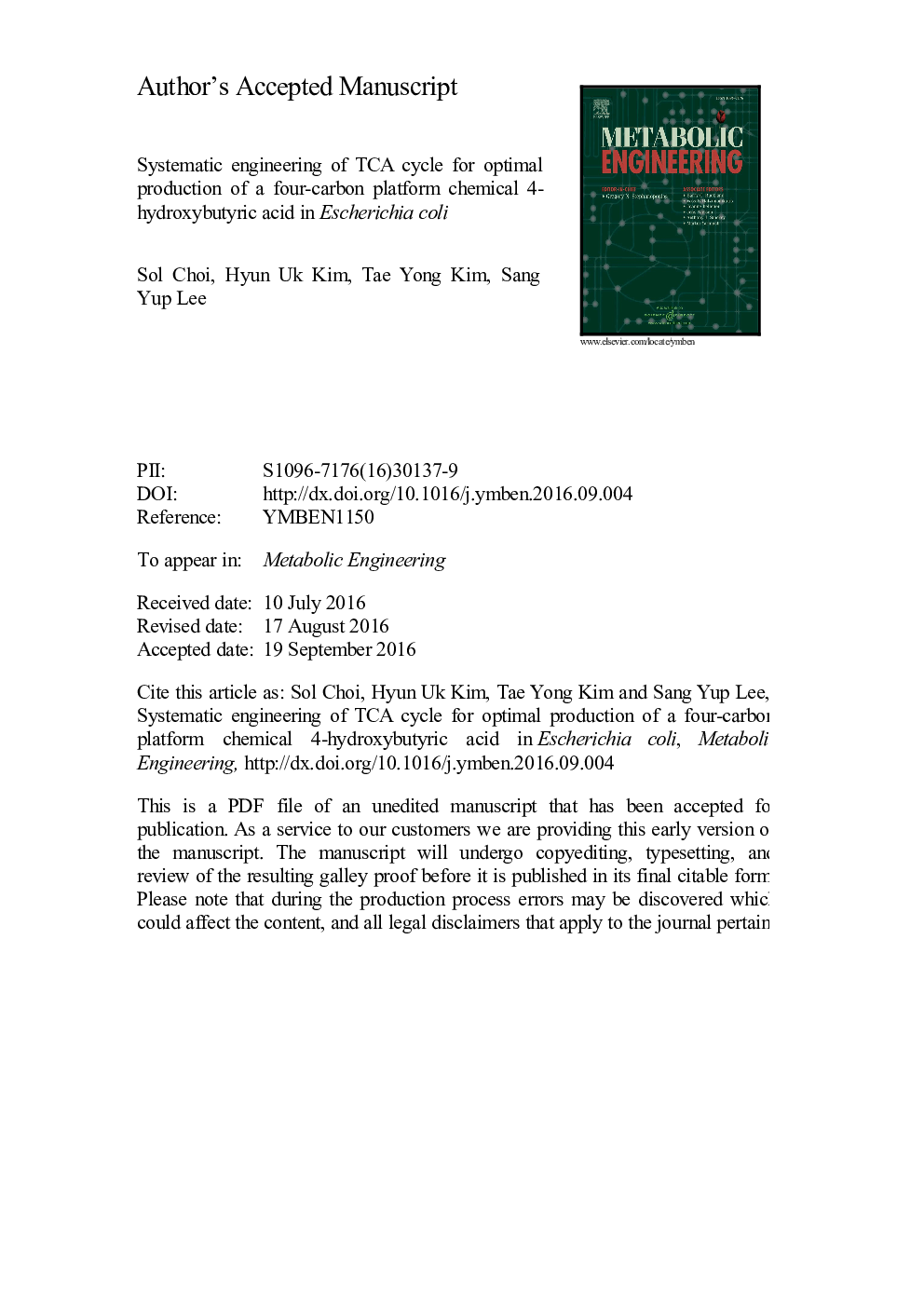| Article ID | Journal | Published Year | Pages | File Type |
|---|---|---|---|---|
| 6494201 | Metabolic Engineering | 2016 | 36 Pages |
Abstract
To address climate change and environmental problems, it is becoming increasingly important to establish biorefineries for the production of chemicals from renewable non-food biomass. Here we report the development of Escherichia coli strains capable of overproducing a four-carbon platform chemical 4-hybroxybutyric acid (4-HB). Because 4-HB production is significantly affected by aeration level, genome-scale metabolic model-based engineering strategies were designed under aerobic and microaerobic conditions with emphasis on oxidative/reductive TCA branches and glyoxylate shunt. Several different metabolic engineering strategies were employed to develop strains suitable for fermentation both under aerobic and microaerobic conditions. It was found that microaerobic condition was more efficient than aerobic condition in achieving higher titer and productivity of 4-HB. The final engineered strain produced 103.4Â g/L of 4-HB by microaerobic fed-batch fermentation using glycerol. The aeration-dependent optimization strategy of TCA cycle will be useful for developing microbial strains producing other reduced derivative chemicals of TCA cycle intermediates.
Keywords
Related Topics
Physical Sciences and Engineering
Chemical Engineering
Bioengineering
Authors
Sol Choi, Hyun Uk Kim, Tae Yong Kim, Sang Yup Lee,
